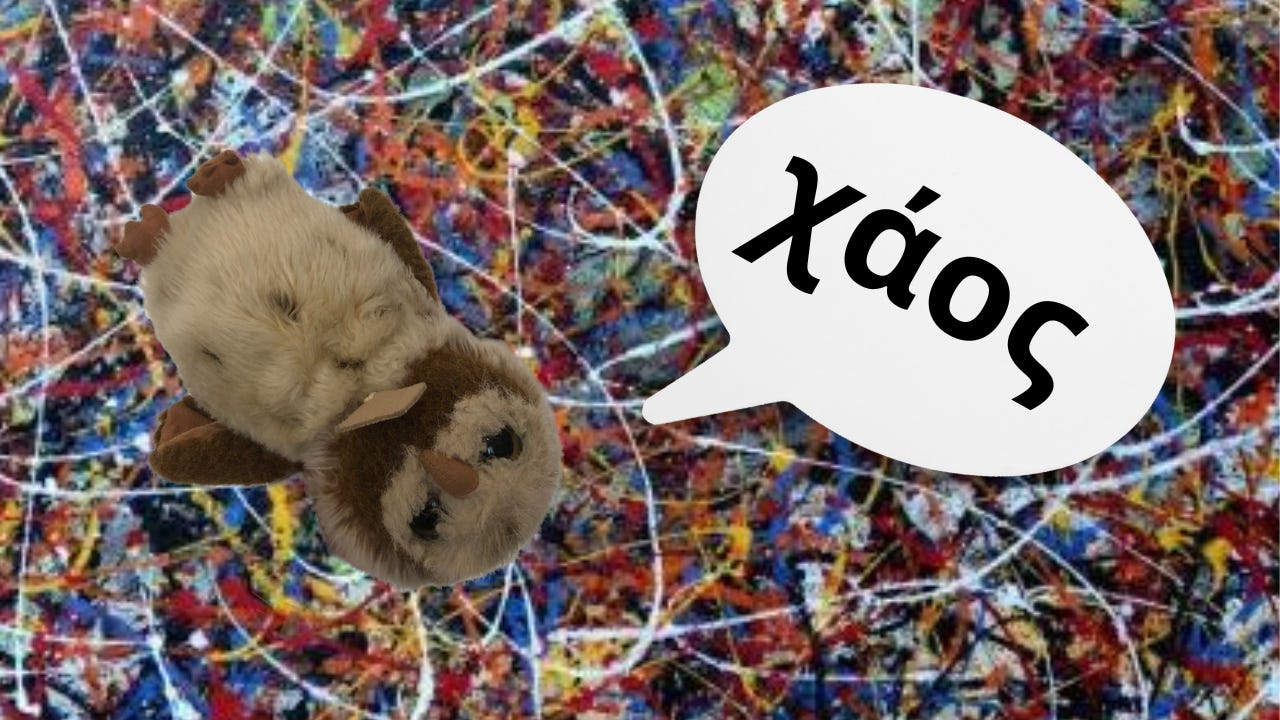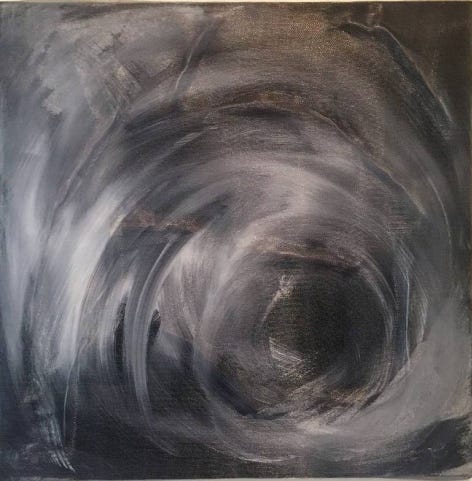By Eugenia Manolidou
Hey there, Classical Kids! Did you know that the word “chaos,” in Greek «χάος» (pron. “háos”), is as old as time itself? It’s true! In fact, the earliest mention of chaos comes from the Greek poet Hesiod (8th B.C.). His work “Theogony” begins with: “First there was Chaos,” and described how everything began in a swirling dance of planets and stars in the endless expanse of space.
Chaos isn’t necessarily bad, although it basically has a negative meaning. Sometimes, it leads to exciting new discoveries and adventures, like mixing different colors of paint to create a beautiful drawing.

Chaos is often described as “abyss,” another ancient Greek word. “Abyss” comes from the word «ἄβυσσος» [pronounced “ávissos”, consisting of the α – (without) + βυσσός (depth)] , meaning a very deep and dark place, similar to the deepest, darkest part of the ocean. The abyss is also a place full of wonder and mystery, much like the stories I love to read or the dreams we have at night. It’s so much fun to explore the unknown and uncover its secrets, don’t you agree?
 Abyss Painting by Gillian Fortson
Abyss Painting by Gillian Fortson
So, the next time you hear the words “chaos” and “abyss,” remember that these amazing words, like many others, have come from Ancient Greek. Isn’t it fascinating how many Ancient Greek words you already know?
Until next time, remember: a little bit of chaos didn’t hurt anyone – but don’t tell your mom!
